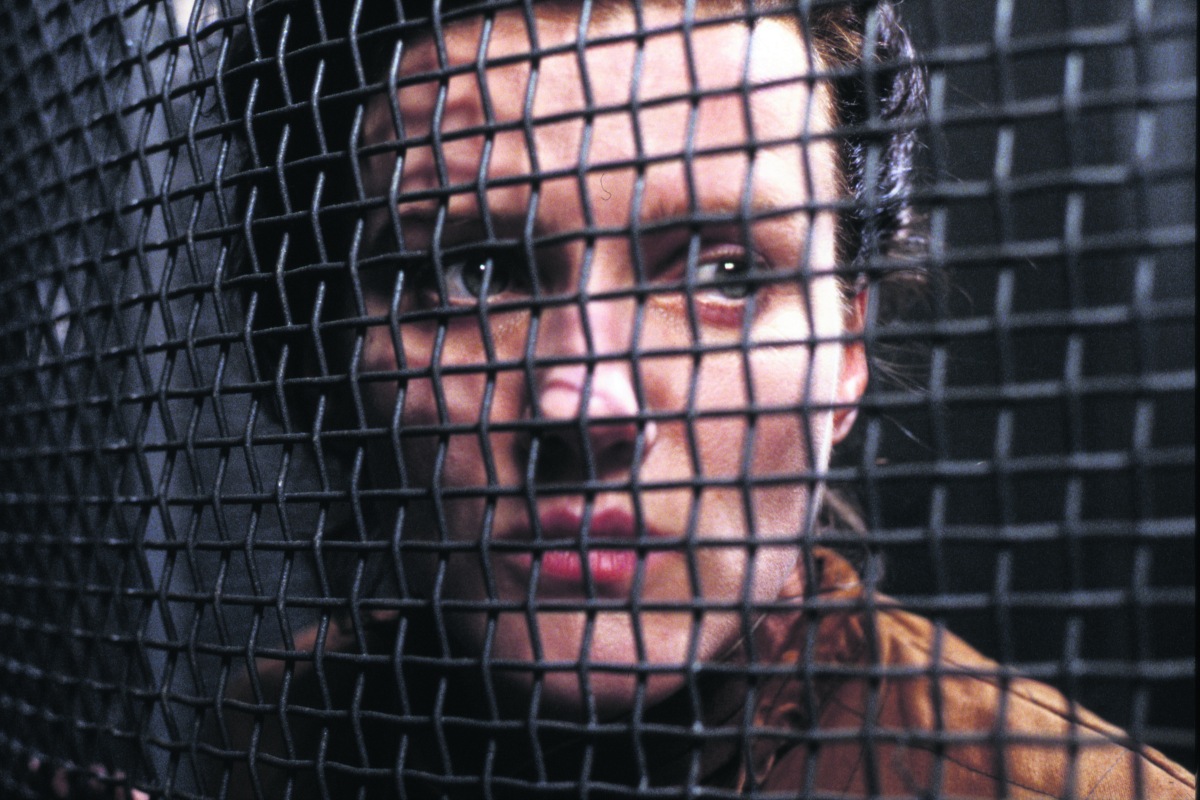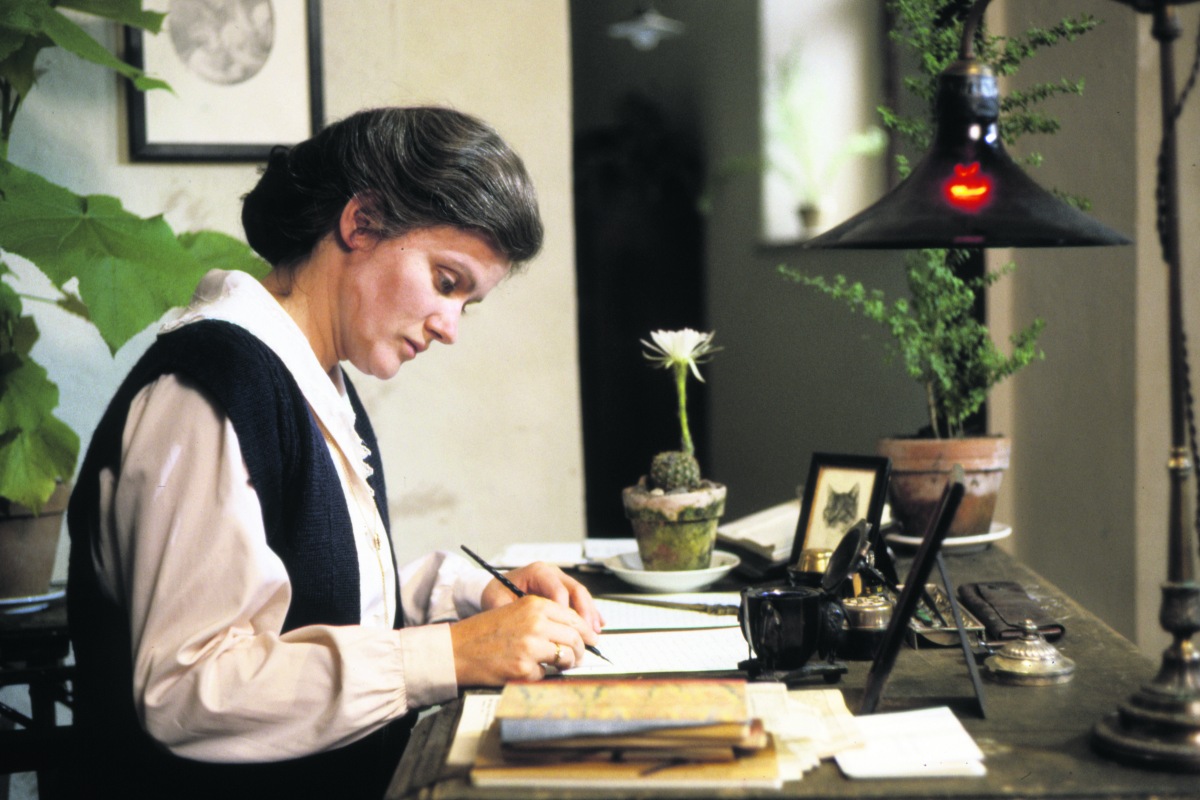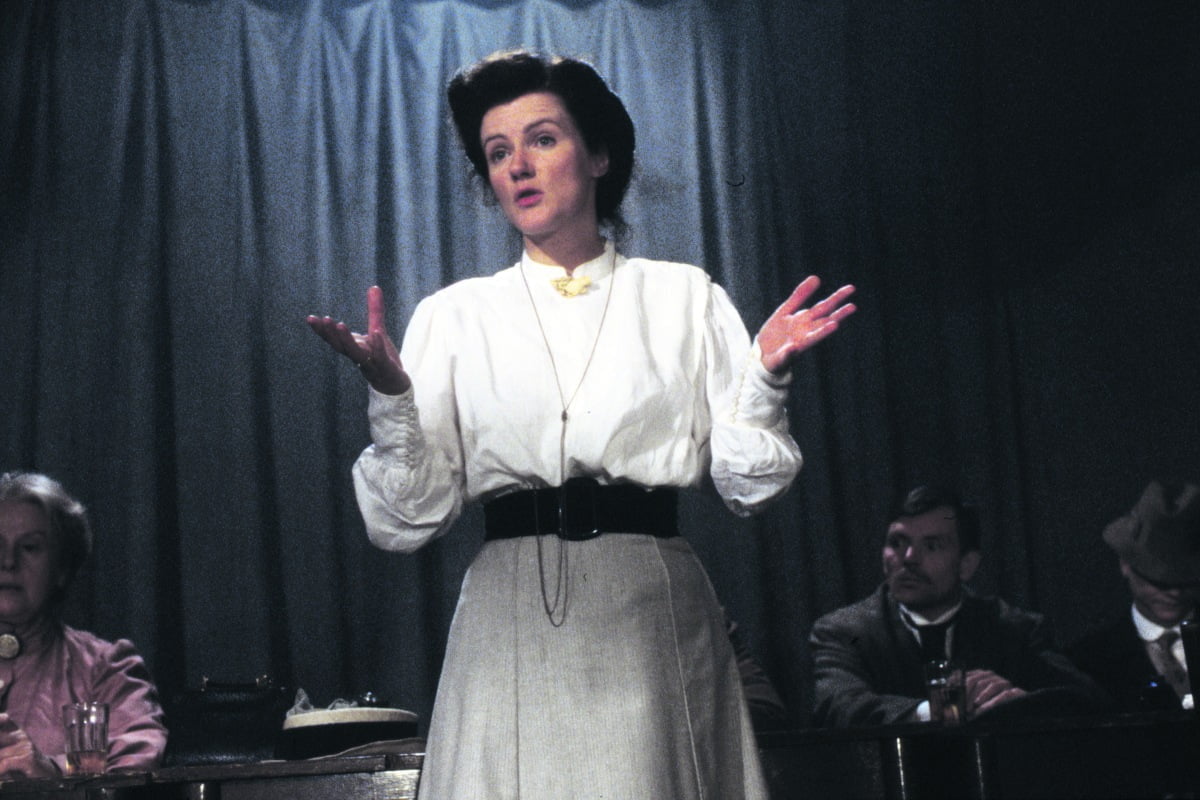Steve Jones reviews the re-release of an inspiring film about the life and ideas of Rosa Luxemburg, the great revolutionary leader and founder of the German Communist Party.
We welcome the long-awaited release of Margarethe von Trotta’s superb 1986 film Rosa Luxemburg, which is now available on DVD/Blu-ray and download through Studio Canal.
This film started life as a project for Rainer Werner Fassbinder. But after his untimely death, it was passed on to von Trotta. Despite her reservations about not being experienced enough to handle a subject of such importance, the director decided to take it on.
Von Trotta abandoned the screenplay Fassbinder was going to use, claiming it was “too melodramatic”. Instead she prepared her own, based on several years of research. This shows through in the finished film, where every detail is based on fact. For example, there is a scene where Luxemburg eats a lonely dinner with her cat at the table. This is based on information provided by an interview von Trotta had with a person who had actually met and known Rosa Luxemburg.
Von Trotta’s film is determined to show not only Luxemburg the person, particularly with regards to her stormy personal relationship with Leo Jogiches, but also Rosa’s politics and why the cause of socialist revolution mattered so much to her.
Barbara Sukowa does not look especially like Rosa Luxemburg. But she does a tremendous job of capturing her spirit, showing her strengths and weaknesses. You can see how the years of struggle and sacrifice slowly take their toll on her physically. In the later scenes, Sukowa introduces a very slight limp, almost unnoticeable, to underline this.
Struggle
 The first two-thirds of the film take place in the harsh wintery conditions of a German prison. This is where Luxemburg was incarcerated by the authorities due to her opposition to the First World War.
The first two-thirds of the film take place in the harsh wintery conditions of a German prison. This is where Luxemburg was incarcerated by the authorities due to her opposition to the First World War.
From here we jump back to various incidents in her life up to that point. This includes her earlier imprisonment by the Polish authorities and her activities in the German Social Democracy (SDP). Although Polish, she understood the need to be involved in what was then the largest and most powerful party of the working class in Europe.
To fully appreciate the film, it helps to know a bit about the political history of the time, in order to properly follow the various debates and struggles that are depicted. Nevertheless, the film does its best to try and explain these, despite only having two hours to do so.
We have, for example, the scene of a bizarre New Year fancy-dress social held by the SDP in 1900, which touches on Luxemburg’s debate with Eduard Bernstein, who wanted to move the party away from Marxism. We also see her early collaboration with Karl Kautsky, as well as the point when she breaks with him politically, although she maintains a close friendship with his wife.
Reform vs Revolution
 Running like a thread through the film is her growing concern and anger with the passivity and reformism of the SDP leadership, its failure to learn from the 1905 Russian Revolution, and a resistance to new methods.
Running like a thread through the film is her growing concern and anger with the passivity and reformism of the SDP leadership, its failure to learn from the 1905 Russian Revolution, and a resistance to new methods.
At one point, during a dinner party with leading SDP figures, she shouts “up the revolution!”, only for one of the guests to choke on his wine in horror. Later, the SDP leader Ebert comments to Luxemburg that at some point they may end up on opposite sides of the barricades, with all that might imply. The actual meaning only becomes fully clear at the end of the film.
As the film progresses, Luxemburg becomes increasingly concerned over the rise of German militarism and the growing threat of war. She speaks at public rallies and at the War against War conference, where Jean Jaures praises her stand.
Her fears about the SDP’s political degeneration are realised in 1914. Standing outside the German Reichstag, Karl Liebknecht (the other leading voice in the SDP against war) informs Luxemburg of the leadership’s capitulation to national chauvinism in voting for war credits.
Together with Rosa’s close friend, Clara Zetkin, they begin to discuss the question of forming a new group: the Spartacists.
Political prisoner
Of course, the anti-war movement soon becomes the subject of repression by the authorities, with its leaders arrested or conscripted into the armed forces. In prison, although Rosa Luxemburg is allowed books, letters and the occasional visit, she is usually kept in solitary confinement so as not to “corrupt” the other inmates.
1918 sees the collapse of the old regime of the Kaiser, the end of the war, and the coming to power of a new government headed by the SDP.
However, Rosa is not released with the other political prisoners and suspects that the SDP leadership is trying to stop her from intervening in the unfolding struggles. It is three weeks before she is able to force the prison authorities to let her out.
Socialism or barbarism
The final section of the film deals with the events of the aborted German Revolution and the workers’ rising in Berlin. This part of the film does seem rushed, showing the budgetary limits that von Trotta was working under. In the main, only vintage newsreel footage is used to show the conflict in the streets.
Luxemburg is seen arguing with Karl Liebknecht over whether the Berlin action of January 1919 is premature and thereby doomed to failure or not. She attacks him for going ahead without proper discussion.
Rather than flee when the uprising fails, however, she chooses to stay with Liebknecht in Berlin to continue the political struggle. Both are arrested by the right-wing Freikorps and, as we know, are quickly murdered. The final scene shows the troops throwing Rosa’s body into the canal, where it will be recovered some months later.
The one failing of the film is that it does not clearly underline enough the treacherous role played by the SDP leadership in this murder. Ebert’s prediction was all too true.
Before both are arrested, we see Rosa reading out to Karl the final words of what would prove to be her last article. Addressing the seemingly victorious forces of reaction she says:
“Tomorrow the revolution will ‘rise up again, clashing its weapons’, and to your horror it will proclaim with trumpets blazing: I was, I am, I shall be!”






